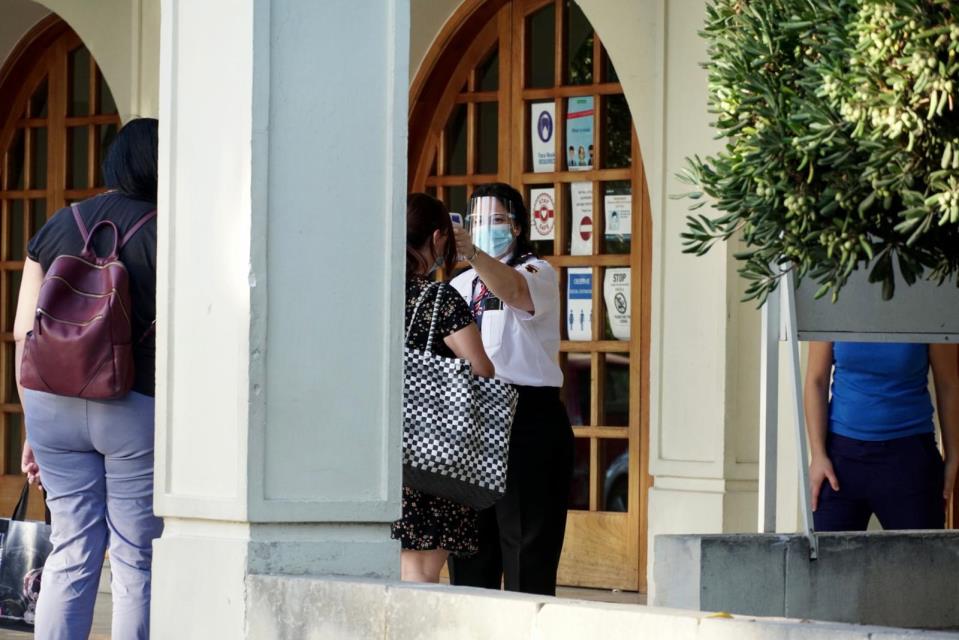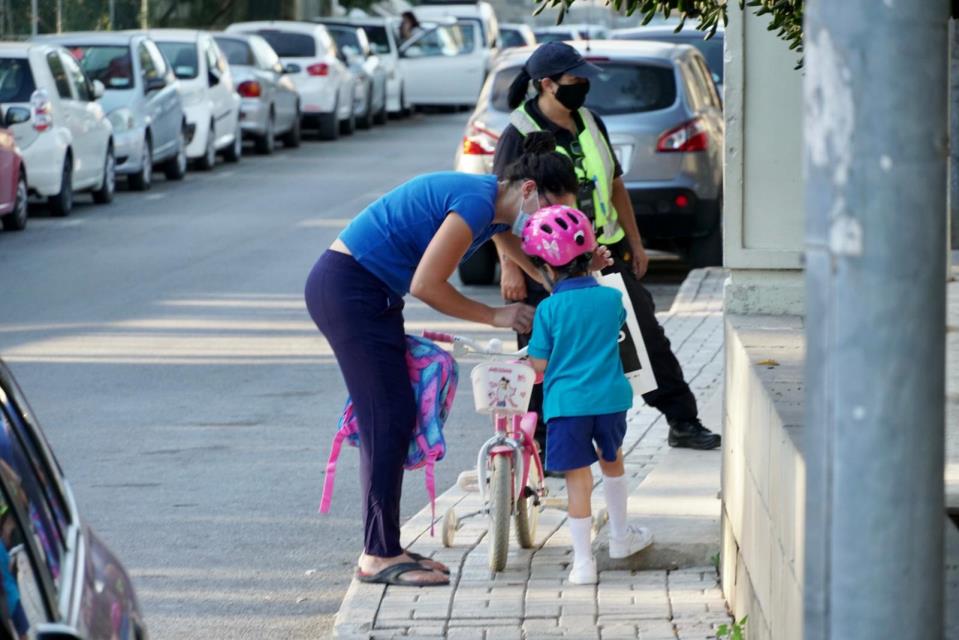All students have missed out on their education as a result of the Covid-19 pandemic and online learning, and an honest exercise on how they can regain what they lost needs to be carried out, Education Minister Justyne Caruana said.
Caruana was being interviewed by The Malta Independent's Editor-in-Chief Neil Camilleri on this week's edition of Indepth.
The minister was asked what attendance was like in an online schooling scenario.
If students do not log on, they are declared as absent, and this will affect their records, she explained. "Some parents complained saying that they cannot monitor all day and ensure that their children are attending every single lesson. But the truth is there are ways of checking," she said, adding that, as a parent, she constantly checks up on her own children.
"I acknowledge that this might be a bit difficult for working parents but we have to ensure that they are present online, because this counts as much as classroom attendance."
"At the end of the day, we have to acknowledge that all schoolchildren have missed out on something. We have to see how they can recover it. Other countries are considering longer school hours and shorter holidays to recoup what was lost. We have to evaluate, realistically and hand on heart, what our children have lost. There has to be a frank discussion where the best interest of our children prevails, so that we overcome the effects of Covid and gain back what was lost."

Were schools closed down too late?
Asked whether the decision to close schools came too late, Caruana said the ministry always follows the instructions given by the health authorities.
"Obviously, when the health authorities tell you to do something, you are obliged to do so by law, but you always have to act with responsibility towards the health and safety of schoolchildren and educators. And this is what we have done."
It was recently reported that up to 12% of active cases of Covid-19 were schoolchildren. The UK variant, which is more easily transmissible, has complicated matters.
Caruana said the 50 measures introduced at schools last year did the job, as confirmed by the health authorities. "Community transmission had remained low, even with schools open. Obviously, now that we have the variant, we are constantly evaluating the situation. As soon as the experts told us that schools should be closed, we followed their advice."

State schools slower to adapt?
It is often said that independent and Church schools are more proactive in the Covid-19 reality, and that teachers at state schools are more reluctant to do online teaching. Asked if she agrees with this assessment, Caruana said no sector is better than the other.
"All of them have their different modus operandi. Obviously, when it comes to state schools, the unions are harsher with us. I tell them [the unions] that they discriminate against us more when it comes to state schools because they negotiate harder. They were not so rigid when we discussed online teaching at independent schools."
MATSEC: Plan B and Plan C
The MATSEC Board this week said that exams are planned to be held in June. Last year, they were postponed to September as a result of the pandemic. Asked if it is realistic to plan for June, Caruana said: "The situation is fluid. We are operating in a reality where things can change from one day to the next. While we have this plan in place, we also have another plan in place which can serve as a basis for the coming years. We have revised curricula to remove anything that is unnecessary - so as to focus on the essentials and not put undue pressure on students."
"There is a Plan B where we will be exploring the possibility of either changing the exam dates or else holding them in a different place to ensure that we stick to the bubbles. Without committing myself, we are exploring the possibility of having students sit for their MATSEC exams at their own schools. This is still at evaluation stage."
"We have to keep in mind that fifth and sixth form students are at a delicate stage of their lives because the results will affect not only their educational progression but also their future career. We need to act carefully in this regard, but at the same time we must also be responsible and safeguard their health and wellbeing. So there is a Plan B and there is a Plan C as well."
Asked about exams at other grades, Caruana said the plan so far is for schools to reopen on 12 April. "There are different options. The prediction so far is that schools will reopen next month and things will proceed as per usual, unless there is a change in circumstances, which can happen at any time."

Will schools open on 12 April?
"Ultimately, this is a decision that has to be taken in the most conscious and responsible manner by the health authorities. The numbers seem to be going down and the vaccination programme is moving at a fast pace. The planned reopening of schools is still four weeks away. During this time, we will be evaluating the situation. If the health authorities tell us that it is not safe to return to school on 12 April, we have to abide by those instructions.
If they tell us that it's safe to open the schools, we will open the schools."
Caruana said that, in the meantime, the government is helping as much as it can. "We are providing computers and internet to families in need, and we have opened four childcare centres - with very strict protocols - for the children of essential front liners. We also launched the Parental Benefit for those working in the private sector because we know that the closure of schools has put added pressures on families, particularly on single parents of families with two or more children."
"There are repercussions, including on children. Whatever measures we introduce, you cannot recreate classroom interaction at home, through online learning. It is a totally different experience. In many countries, schools remained closed. We kept them open for as long as it was reasonably safe to do so. A lot now depends on people, and how responsible they are in keeping the infection numbers low."
Students who require an LSE
One challenge arising from online learning is related to students who need an LSE. In the current situation, LSEs cannot go to these students' homes, and many parents work. Caruana was asked what the ministry is doing in this regard.
"Vulnerable students are always vulnerable, irrespective of the situation. For a start, one-to-one therapeutic services are exempted and continue to be provided. LSEs are being vaccinated. But this also depends on whether there is agreement with the unions. We have asked Prof. Gauci to possibly keep resource centres open - perhaps with smaller numbers - so that we can help out these parents. We are talking here about children who need 24-7 attention and who need medical care."
"It is always challenging to have children with certain conditions sitting in front of a computer screen for long periods of time. The reality is - and this applies for all children - that the online experience does not compare to at-school teaching. But the circumstances are what they are. We cannot deny our children teaching, but the truth is that the current way of teaching is not the ideal one."